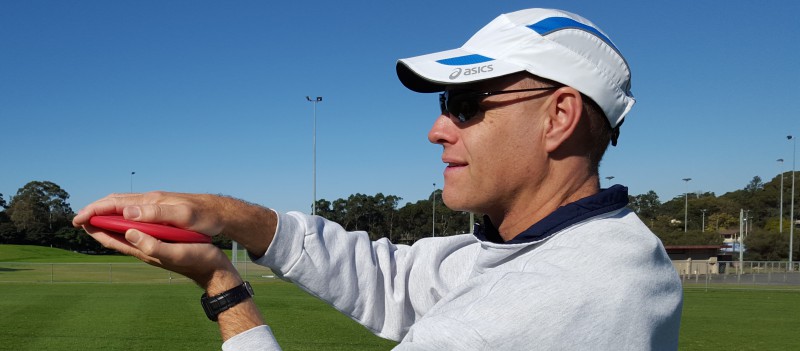The 12 Best Tips From ‘Coaching Young Athletes’ During 2022
Below are 12 of the best tips, tricks, thoughts, and ideas that appeared in articles posted on the Coaching Young Athletes blog during 2022.
1. Focus On The Process
Avoid a preoccupation with records or results. Look past them. If kids get caught up in chasing a result they will lose focus on what it takes to get there. Rather, encourage kids to focus on what they have to do – the basics and the little things – and the results will follow.
2. Find Positivity In The Process
Rather than fixating on a “failure”, we can look for positivity in the process.
Consider a young high jumper who just misses a personal best height after a gallant attempt. They could still rate the jump “10 out of 10” according to predetermined performance indicators – even if the attempt results in them leaving the competition without a winning result. The jump will show up in the results as a failure, but from the young athlete’s perspective, it will be far from a failure. It may have been their best jump of the competition. This is an example of finding fulfilment despite “failure”, and a genuine instance of a “process” focus rather than a “results” focus.
3. Focus On What You Want, Not On What You Don’t Want
“Ironic processing” is when trying to quell certain thoughts makes it more likely that they will appear. According to this theory, telling an athlete not to think about false starting in a race or fouling in the long jump may backfire and have the opposite effect. We should always try to frame our instructions in the positive. Be mindful of using the word “don’t”. (E.g. “Make sure you don’t false start today.”). Describe what you want the kids to do rather than what you don’t want them to do.
4. Focus On The Non-Negotiable Skills
What are the must-know skills for beginners? This is where the majority of the initial coaching should occur. Early on, forget anything secondary to this. Too much explicit coaching at this stage can slow the kids down and interrupt their natural movements. We don’t want to overload their processing limits.
The coach needs to decide which core skills will allow the kids to fully participate, provide a platform for further learning, and keep them safe. Initially avoid trying to explicitly teach them skills that are peripheral to this.
What are initially considered peripheral skills for beginners, may need a greater focus at a later stage of development. But most of the kids involved at a grassroots community level will at first just need the basics.
5. Limit Your Coaching Cues
If too many coaching cues crowd a kid’s working memory the child may be unable to concentrate on anything that you’re telling them. One coaching cue at a time may be a better strategy. Let them become familiar with that and then move on to the next.
6. Deliver Focused Feedback
We often want to deliver as much feedback as we can, in as short a time as possible. We want to fix everything at once. We need to be a bit more strategic. Due to the limits of the working memory a young person may only be able to effectively focus on one point of feedback at a time. Give the child time and space to process this feedback before adding to your advice.
7. Deflect Distractions
Due to the limited capacity of the working memory, coaches should be mindful of overloading it with information or activities that don’t contribute to what we are trying to teach. Shield athletes from extraneous information that will vie for valuable learning space. Help them narrow their focus down to hone in on what will be most helpful.
8. Don’t Let “Fancy” Affect Focus
Coaches will often strive to make things interesting and novel for kids. In doing so, we need to take care that our drills, challenges, activities, and games don’t become over-complicated and negatively affect learning.
Be aware of how much you are asking the child to process. If you expect a child to remember aspects of a new skill, as well as the rules of a new game, or the route of a fancy new obstacle course, they may not be able to focus on either.
Kids will often lose their way because they’re trying to remember the skill while they’re trying to remember the drill. They can’t do both. When you’re introducing unfamiliar skills, you may want to make the initial activity relatively simple. Another strategy may be to first focus on teaching either the skill OR the drill in isolation. You can combine them later on.
It’s very enticing to keep things interesting by using fancy activities. There is a time and place for such things. Just make sure that “fancy” is not negatively affecting focus.
9. Aid Autonomy
A coach can aid an autonomous environment by:
- Providing a child with choice. E.g. Let them choose what coloured ball they would like to use or determine the difficulty of the task they are going to undertake.
- Asking for their opinion. E.g. Ask them what they thought about your new game.
- Giving them a say. E.g. Ask them what they would like to do at practice today or next time.
- Showing them that you are willing to listen. i.e. Take action in response to their suggestions and opinions.
10. Create Confidence
Success builds belief in kids. Therefore:
- Ensure some early and frequent (but not constant) success.
- Match tasks carefully with the individual. Keep activities within a child’s realistic skillset, with just the right amount of challenge.
- Provide lots of specific encouragement and positive feedback.
11. Curate Connection
A strong social connection will make it more likely a child will want to involve themselves in a sport. Coaches can positively influence the building of social connections by:
- Strategically inserting cooperative or team-building activities into a session. e.g. A challenge in which the kids need to work with a partner or group.
- Providing a space for the kids to talk and interact.
- Getting to know the kids as people.
12. Ask: “What Did You Most Enjoy Today?”
This question can reveal some very useful things to use in your session review. It also helps to guide your next session plan. Asking this question can be a little bit confronting; you are opening yourself up to feedback from a very honest audience! Most importantly, it teaches you not to assume anything, as the kids’ answers will often surprise you.
Which tip is your favourite?
I would love to hear which of the tips is your favourite. What resonates with you? Let me know by leaving a comment/reply or by using the contact details below.
Further reading
25 Tips From 2021 That Will Make You A Better Coach
If this post helped you please take a moment to help others by sharing it on social media. If you want to learn more I encourage you to leave questions and comments or contact me directly.
Darren Wensor is a sports development professional, coach educator, specialist coach of young athletes, and founder of the blog coachingyoungathletes.com. Learn more about him here and connect with him on Twitter, Facebook, Linkedin, or via email. Check out Coaching Young Athletes on YouTube, the Coaching Young Athletes podcast, and the Coaching Young Athletes E-Book Series.

